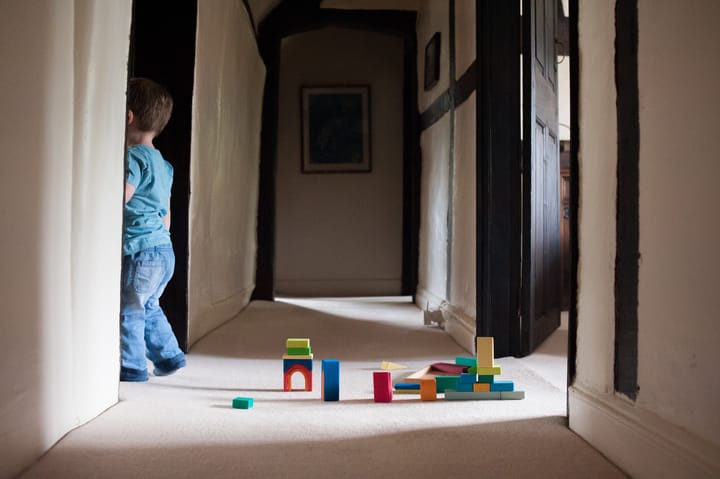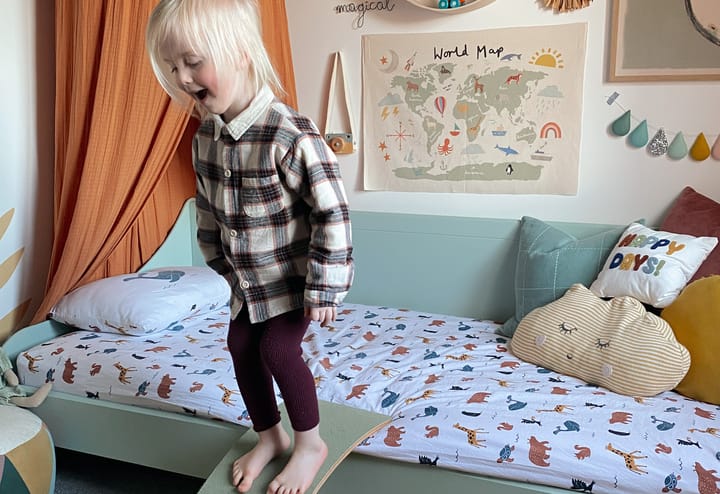Regression games

Reassuring your child by revisiting early caregiving experiences
We're in the kitchen and my youngest is four years old.
She's bright and funny and, perhaps, the most articulate of my four children. But on this occasion, she has other things in mind.
Geh-Geh! she says, eyes wide.
Hello Geh-Geh! Are you hungry? Would you like some milk? Or a cuddle and a nursery rhyme?
Geh-Geh! she nods. She raises her arms and looks at us expectantly. You have understood, her expression says.
Pick me up.
It's a game she likes to play and the rules are simple: I say 'Geh-Geh' and you pretend that I'm a baby again.
So, we rock her and sing nursery rhymes. We put food on a spoon. Even her too-cool and cynical brothers sometimes join in the fun. These moments of regression aren’t just adorable - they’re important. They show that, even as she grows in independence, she still seeks reassurance and nurturing. It’s our job to meet her where she is emotionally.
This kind of play is one example of how attachment bonds are formed and strengthened. It’s through these small, tender moments that we build the trust our children need to confidently explore the world. And the games we play - whether it’s peekaboo or hide-and-seek - are far more significant than they might seem.
Materials needed
- Blanket or soft fabric (optional).
- Toys or objects associated with infancy, such as rattles or soft toys.
Instructions
- Respond to her cues. If your child signals a desire to play as a baby - for example, by talking in baby language or asking to be held - follow her lead.
- Create a nurturing environment. Hold her, rock her gently, or wrap her in a blanket if she enjoys it. Sing lullabies or nursery rhymes to enhance the experience.
- Involve siblings if appropriate. Encourage older siblings to join the play by pretending to care for her as well. Ensure they are gentle and follow her lead.
- End the session naturally. Let her decide when to stop the game. Avoid rushing her back into her regular role.
Tips
- Be patient. Regression play can take time, especially if your child is navigating a challenging situation.
- Validate her feelings. Use phrases like, “You love being my baby for a little while, don’t you?”
- Don’t overuse it. While valuable, this type of play is most effective when initiated by your child.
Expected outcome
- Emotional security. Your child feels loved and nurtured, strengthening her sense of safety.
- Stress relief. Revisiting early caregiving experiences helps her process anxiety or transitions.
- Stronger attachment. These moments deepen your bond and reinforce her trust in you.
Why this works
Regression games allow your child to return to a time when she felt completely cared for and loved. By meeting her where she is emotionally, you reassure her of your unwavering support and understanding. This creates a foundation of security that helps her navigate challenges and transitions.
Final word
Regression games offer a unique opportunity to reassure your child and deepen your connection. By embracing her desire to revisit early caregiving experiences, you provide her with the comfort she needs to grow and thrive. Try it the next time she signals the need for extra nurturing, and let me know how it works for you in the comments below.
Read the rest of the attachment play tools:



Comments ()